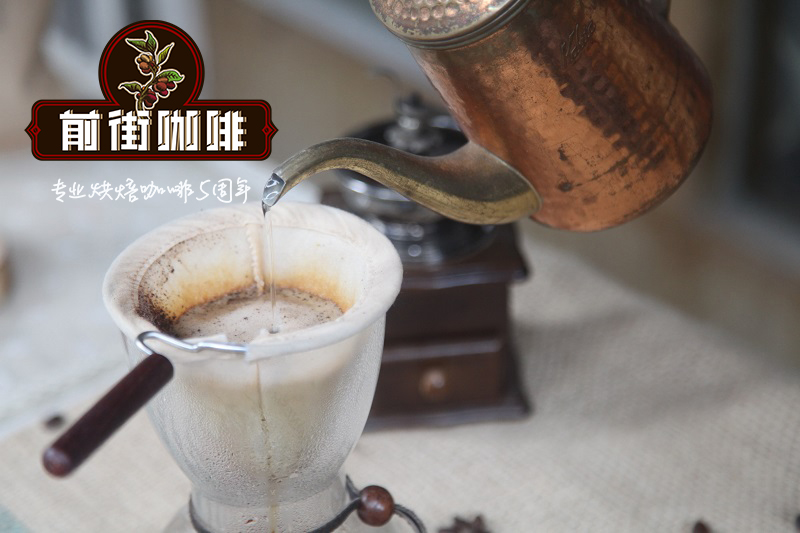Why does brewed coffee taste better or worse than sour coffee?

Professional coffee knowledge exchange more coffee bean information please follow the coffee workshop (Wechat official account cafe_style)
Acidity is the most controversial attribute in boutique coffee, although many boutique coffee lovers and competition judges like good acidity, but acidity often makes people confused.
What is sour? Why did you get the coffee? Is acid good or bad? More importantly, how to adjust the acid quality by cooking or baking?
Acidity has always been controversial in coffee.
Some people think that acidity is the feeling of sharpness, irritation, and stinky acid.
But some people think that good acidity is the representative of high-quality coffee.
It's true that sour coffee doesn't make people happy.
But bright, lively and rich in acidity, which may remind you of flavors such as fruits and sweet oranges
This kind of acid is highly acceptable to people who like coffee.
Whether it is to emphasize the natural, juice-like acidity of coffee
Or avoid the unpleasant sour taste of coffee, which can be done.
What is sour?
Lively, full-bodied, sharp, bright, fruity. These words are often used to describe acidity, although they have exhausted adjectives to describe them, but sometimes they still feel inadequate. After all, it is not easy to describe acid quality.
Mainly because the acid has many features, it affects the flavor and aroma, forming stone fruits, sweet peaches and apples and other taste feelings. At the same time, the acid quality will also affect the taste, as long as the professional cup tester can tell whether the acid leaves a stimulating feeling in the mouth, if there is no irritation, it means that the acid strength is very low or there is no acid.
Acidity is also a chemical compound, which affects whether coffee tastes good or not. Understanding the chemical composition of coffee can help bean bakers or brewers get better flavor.
Someone once said: "the sour quality can give full play to the flavor of a cup of coffee, and it can also make the flavor unbalanced. When the sour taste is too heavy to cause irritation, it will make the drinkers disgusted and rejected."
But if there is no acid, it will make this cup of coffee taste too dull.
There is no general grinding thickness, but here are some basic principles that can help you flush better or reduce acid quality.
Rougher grinding reduces the extraction rate because the coffee powder has a smaller surface area (note that the extraction rate is different from the cooking time, which refers to the extraction of flavor and aroma substances, while the cooking time refers to the contact time between the water and the coffee powder).
This means that rougher grinding will bring out bright acidity, but brewing too long will cause the coffee to have a smelly sour taste.
If you want more acid, use rougher grinding. If you want less acid, you can grind it finer.
Of course, the grinding thickness is only one of many factors, and the ideal thickness will vary depending on the nature of the coffee.
For example, deep-roasted coffee is easier to dissolve and extract faster, so deep-roasted coffee is usually suitable for coarser grinding.
There is no general grinding thickness, but here are some basic principles that can help you flush better or reduce acid quality.
Rougher grinding reduces the extraction rate because the coffee powder has a smaller surface area (note that the extraction rate is different from the cooking time, which refers to the extraction of flavor and aroma substances, while the cooking time refers to the contact time between the water and the coffee powder).
This means that rougher grinding will bring out bright acidity, but brewing too long will cause the coffee to have a smelly sour taste.
If you want more acid, use rougher grinding. If you want less acid, you can grind it finer.
Of course, the grinding thickness is only one of many factors, and the ideal thickness will vary depending on the nature of the coffee.
For example, deep-roasted coffee is easier to dissolve and extract faster, so deep-roasted coffee is usually suitable for coarser grinding.
END
Important Notice :
前街咖啡 FrontStreet Coffee has moved to new addredd:
FrontStreet Coffee Address: 315,Donghua East Road,GuangZhou
Tel:020 38364473
- Prev

What does soe coffee mean, suitable for hand-brewed coffee or Italian? Taste characteristics of soe and single Coffee beans
Professional coffee knowledge exchange more coffee bean information please follow the coffee workshop (Wechat official account cafe_style) SOE is the abbreviation of SingleoriginEspress single-producing espresso coffee SOE coffee is SingleOriginEspresso
- Next

The complex and changeable acidity and sweetness of SL34 and SL28 on coffee
Professional coffee knowledge exchange more coffee bean information Please pay attention to the coffee workshop (Wechat official account cafe_style) High-quality Kenyan coffee beans are widely planted between 1300 and 2100 meters above sea level, just below the equator in Kenya, about 6 million people are engaged in the coffee industry, mostly in the form of a combination of small farmers and cooperatives. The main planting areas include Ruiri and Thik.
Related
- What is the meaning of lactic acid fermentation with coffee bean treatment?
- How to judge the state of foam by sound?
- How does the latte pull out the unicorn pattern? Come to get for a little trick to improve the flower pull!
- Will flower pulling affect the taste of the latte?
- Do you know the history of coffee?
- The difference between honey treatment and sun washing what is raisin honey treatment?
- What kind of milk can a novice use to make coffee foam to keep the foam longer? The correct method and skills of milking tutorial sharing
- Why do washed coffee beans taste sour? Flavor characteristics of washed Coffee
- Introduction to the skill of how to practice the size and height of water injection around the circle of hand-brewed coffee
- How do beginners practice coffee flower drawing from scratch?

